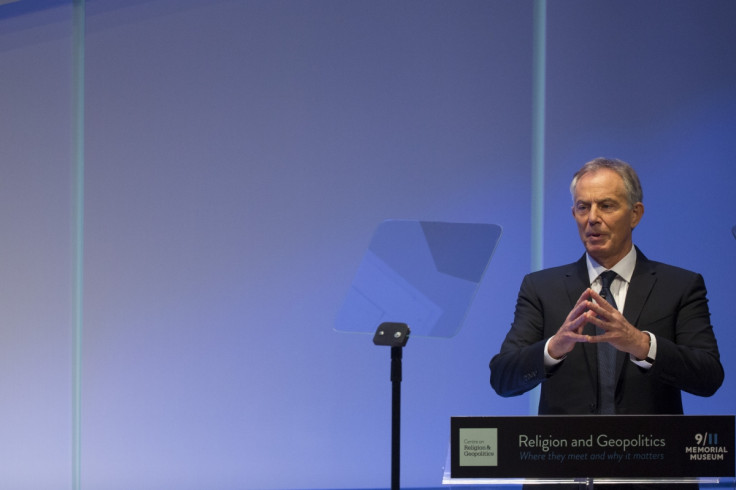Five key points from Blair's speech on Islamic extremism at the 9/11 Memorial Museum

Tony Blair's speech at the National 9/11 Memorial and Museum in New York on October 6 addressed radical Islam. In it he offered his latest views on an issue that was among those to define his term in office, and on which he continues to be a divisive figure.
Many, including former members of his government, blame the US-led invasion of Iraq in 2003 for radicalising many Muslims, and have called on Blair to apologise. Blair though continues to have many admirers in the US, where he is remembered for his unwavering support for the country after the 9/11 attacks.
Blair said that his time in 10 Downing Street and subsequent work as a Middle East peace envoy gave him a number of insights into the jihadi mind, and cited new research by the Tony Blair Foundation on the issue. Here are five of his key claims.
Problem 'deeper and broader' than previously thought
Blair said the problem of radical Islam is "deeper and broader" than people realised after the 9/11 attacks, affecting not just the Middle East, but also the Far East, Central Asia, Africa, Europe and America. Because of its spread, Blair said that defeating Islamic extremism should not be thought of as something that can be achieved within an election cycle, but as a "generational struggle."
Religious ideology central
Some have argued that political ideology or poverty and alienation are the chief motivators of jihadism. For Blair though, jihadism " is absolutely and integrally driven by religious ideology and a particular reading of scripture." Blair said that though there were also Christian and Jewish terrorists, "Islamist extremism in scale and impact is different and threatens global security."
Extremist values find echo in wider Muslim community
In arguably his key claim, Blair argued that it is not just an isolated violent fringe in the Muslim world that holds extremist views but that "the conspiracy theories which illuminate much of the Jihadi writings have significant support even amongst parts of the mainstream population of some Muslim countries." Blair claimed that Muslim preachers and schools not just in the Middle East taught "a view of the world and of their religion which is narrow-minded, prejudicial and therefore in the context of a globalised world, dangerous."
The solution
There are many in the Muslim world, Blair argued, "who feel a deep sense of outrage at the hijacking of their religion by the extremists and who are determined to retake it and restore its true purpose." Their support, Blair argued is key to combating jihadism.
He encouraged those opposed to Islamic radicalism "to encourage, support and maximise the reach of those prepared and capable of offering an alternative interpretation of the theology of Islam and who can rebut the propaganda of the extremists on religious and scriptural grounds." Secondly Blair advocated action to counteract the message of those more broadly sympathetic to elements of jihadist ideology.
"In parts of the Muslim community a discourse has grown up which is profoundly hostile to peaceful co-existence. Countering this is an essential part of fighting extremism." Blair called on support for international educational initiatives to help prevent the growth of extremism. "The challenge is from within Islam. The solution is also from within Islam," Blair argued.
The elephant in the room
Conspicuous by its absence was any mention by Blair for his controversial support for President George W Bush's 'war on terror', which has been blamed for radicalising many Muslims. "A majority in four large Muslim countries agreed there was a need 'to stand up to America and affirm the dignity of the Islamic people', as if the two were in opposition to each other," said Blair, yet he did not explore the roots of this antipathy.
Earlier, Blair rightly argued: "Fascism was not the inevitable product of post war depression or feelings of injustice after the Treaty of Versailles," which is not to say there is no political and economic dimension to the rise of radical Islam.
© Copyright IBTimes 2025. All rights reserved.




















